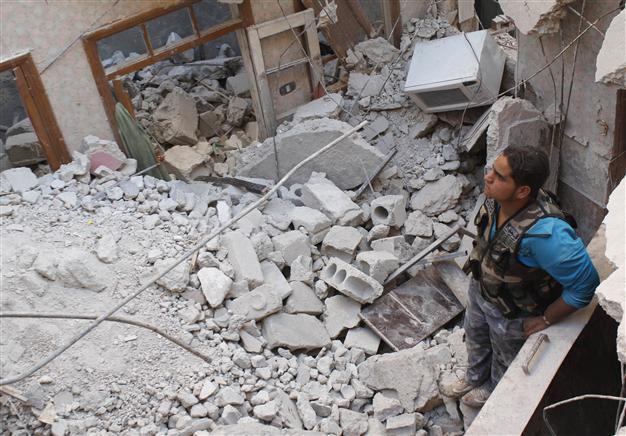Kurdistan Regional Government rules out intervening over Syrian border
ARBIL, Iraq - Reuters

REUTERS Photo
Iraqi Kurdish Regional Government (KRG) has no plans to send troops into Syria to defend fellow Kurds, a senior Iraqi Kurdish official said, despite safety concerns which have driven thousands to cross the border.Iraqi Kurdish leader Massoud Barzani said earlier this month his well-armed region was ready to defend Kurds living in northeastern Syria if they were being threatened by rebel militants who have captured swathes of land in the north.
But his chief of staff said it did not mean that Iraqi Kurdistan was considering sending troops across the border, a move which would drag the region deeper into a conflict that has increasingly split it down ethnic and sectarian lines.
Western powers were weighing up options on Tuesday for a possible military strike against Syria following a suspected chemical weapons attack on a Damascus suburb last week that killed hundreds of civilians.
"Our policy is not to intervene militarily," Fuad Hussein told Reuters in the regional capital of Arbil. "I think the Kurds in Syria, they have got their own people to defend (them)," he said.
"They do not need military units to go there, but perhaps they need all other kinds of support," he said.
He said Iraqi Kurdistan could help coordinate international aid, predicting more refugees after about 40,000 mainly Kurdish Syrians arrived in the last two weeks in one of the largest single movements of people since the conflict began in 2011.
Regional officials refer to northeastern Syria, where most Syrian Kurds live, as "Western Kurdistan." Kurds form big populations in Syria, Turkey and Iran but have no state of their own. They have an autonomous regional government in Iraq.
Officials from the U.N. refugee agency have made internal predictions that up to 100,000 Syrian refugees could to flee to Iraq within the next month if the pace continues.
Empty northern Syria
Hussein urged Syrians not to leave unless absolutely necessary, saying he feared the exodus may turn attention away from Kurdish political issues. In Arbil, some Syrians who fled have obtained residency permits and work in hotels and cafes.
"We are worried about having an empty Kurdistan in Syria because if the population will leave then there will not be a Kurdish issue in Syria and then we will also lose that part of Kurdistan," Hussein said.
















